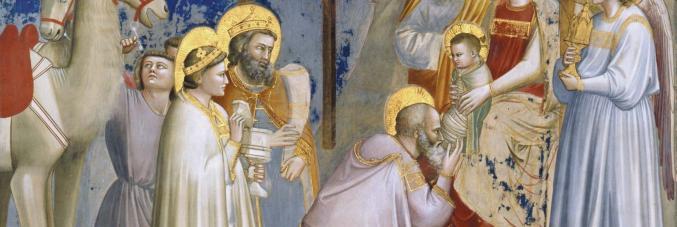
How art changed society: Dr Zuleika Murat awarded the prestigious ERC Starting Grant for 1.5 million Euros
11.09.2020
The University of Padova is immensely proud of Dr Zuleika Murat for her great achievement in securing the prestigious European Research Council (ERC) Starting Grant in the 2020 call for proposals. Dr Murat’s research project is worth 1.5 million Euros and related to the “Culture and Cultural Production” domain; such recognition highlights the excellent results obtained by the University of Padova in international rankings, including the "Art & Humanities" field among others. In particular, in disciplines such as history and archaeology, the University ranks among the top universities in Italy and the best 150 in the world. Zuleika Murat was also awarded the STARS@UNIPD grant, which is promoted by the University of Padova and is specifically addressed to ERC-bound researchers; this certainly helped her in achieving the ERC award, making her a more competitive applicant.
About the research project SenSArt - The Sensuous Appeal of the Holy. Sensory Agency of Sacred Art and Somatised Spiritual Experiences in Medieval Europe (12th-15th century)
Is sight the only sense actively involved in the perception of art? This is a crucial question for Western culture, dominated today by the hegemony of vision and the suppression of the other senses. By challenging the current ocularcentric paradigm, and assimilating notions on the cultural values of sensation, SenSArt, Zuleika Murat’s project, aims at providing the first examination of medieval sacred art from the unconventional lens of its sensory agency.
Between the 12th and the 15th century, Europe underwent an extraordinary artistic evolution and an impressive cultural revitalization, which sparked a reassessment of the role of sensory perception in systems of knowledge and spiritual enlightenment.
SenSArt explores and compares different social environments in six selected regions, pursuing three ground-breaking objectives: it will analyse quantitatively and qualitatively the perceptual schemes that orientated the reception of sacred art, scrutinizing how art solicited its beholders through multiple sensory inputs; it will develop and investigate the new notion of ‘sensory agency’ of art, establishing sacred art as a primary actor capable of exerting, through sensorial stimulation or deprivation, a social agency on its audience; finally, it will provide an overall phenomenology of experiences on a European scale, by comparing the diverse patterns that different social groups lived on a local, regional and supranational scale.
SenSArt, which is a 5-year project, will achieve its goals by developing a new combined approach at the crossroad of Art History, Philosophy and Text Studies; it will establish a multidisciplinary team of scholars (in addition to the PI, Zuleika Murat, it will involve 4 Postdocs and 2 PhDs) to delve into a comparative set of materials, including normative texts on the senses and works of art. The project promises to bring about a paradigm shift in our understanding of Medieval Europe. It will shed new light on wide historical, devotional and cultural phenomena, outlining complex networks of social interactions where humans, art and the senses interplayed with each other.
The University of Padova STARS@UNIPD Grants towards the ERC
As previously mentioned, Zuleika Murat was also awarded the STARS@UNIPD grant, providing funding for two-year research projects, proposed by researchers with excellent scientific qualifications willing to launch or consolidate an independent research activity and a research team at the University of Padova. Grants operate on a 'bottom-up' basis, without any predetermined priorities. They are open to Principal Investigators of any age and nationality, who wish to pursue research at a Unipd department and who are able to demonstrate the innovative nature, the ambition and the feasibility of the proposed research. The initiative aims at boosting the participation of the University in ERC calls, promoting an open and positive attitude towards international funding opportunities for basic research.
ERC Starting Grants
The European Research Council (ERC) bestows the Starting Grant to promising early-career researchers with two to seven years experience after obtaining the Ph.D. The fundamental activity of the ERC is to provide attractive, long-term funding to support excellent investigators and their research teams to pursue ground-breaking, high-gain/high-risk research. Research funded by the ERC is expected to lead to advances at the frontiers of knowledge and to set a clear and inspirational target for frontier research across Europe.



